SMEs are slipping through the cracks in aid packages as avenues close. What can they do?
Cashflow. Speak this word in a room full of challenger brand owners and watch them shiver.
As an fmcg startup, cashflow is always tight, between upfront manufacturing and warehousing costs, minimum order quantities, delayed payment terms and marketing spend to keep up the growth.
Add in a global pandemic and the usual cash shortages can become suffocating.
As the coronavirus outbreak develops, some SMEs are doing just fine, sales-wise; but others are dealing with the complete loss of foodservice revenues, while others have been delisted as supermarkets focus on stocking essential products.
Even those with products considered staples, and benefiting from soaring sales, are struggling to find the cash to ramp up production and keep up with demand, despite reductions in payment terms by some retailers.
So, what can challenger brands do to navigate this most atrocious of storms?
Emergency support
The government rushed to unveil a series of emergency measures to support businesses dealing with the effects of coronavirus. Though on the surface comprehensive, the devil is in the detail. So far, most of the available aid seems to have let challenger brands slip through the cracks,
A £10k cash grant promised to SMEs, for example, will only be available to startups qualifying for small business rates relief, meaning those working from shared office spaces or running their businesses from home will be entirely left out.
And it is no small caveat. A survey conducted exclusively by The Grocer found only 16% of startups said they were eligible for the grant, with 63% missing out because of their working arrangements and 21% unsure whether they would qualify.
As her business is based in the London Business School incubator, Fighter Shots founder Anna Szymanowska says she realised “pretty quickly” there was no support she could access.
“I don’t pay business rates yet, and as a supplier to coffee shops and offices, I lost part of my business,” she says. “So far, I haven’t seen any support which would concretely alleviate the situation.”
Even those who qualify to receive the grant have raised concerns over the timing and delivery of the money, which will be handled by local authorities.
The majority of the brands surveyed said they were “not at all confident” councils will deliver the grant money in a timely manner. “There will be tens of thousands of businesses trying to get this grant through. I have absolutely no confidence the council will pick up the phone and hand me the money,” says Kris Ingham, founder and CEO of Rejuvenation Water.
Another measure drafted specifically for SMEs is the Coronavirus Business Interruption Loan (CBIL) scheme, a government-backed loan providing up to £5m in funding.
But that too has challenges.
Over 50% of the brands surveyed have considered applying for the loan but, of those who already have, none has so far received approval. Many complain of long approval processes and waiting times as banks are overwhelmed with requests.
SME survey findings
- 37% of respondents reported a drop in retail sales since the start of the outbreak, 26% a rise and another 26% no difference. Another 11% do not sell in retail
- 68% reported an online sales increase, 11% a decrease and 16% no change. Another 5% don’t sell online
- 16% were told by a retailer they faced delisting to prioritise high-volume products
- 79% have considered accessing government aid
- Only 16% are eligible for the £10k grant, while 21% are not because they work from home. A further 42% don’t qualify because they work in a shared office and 21% were unsure
- Only 5% were extremely confident the councils would deliver grant money in a timely manner. A further 5% were very confident, 26% somewhat confident, 32% not so confident and 32% not at all confident
- 53% have considered applying for the CBIL, 47% have not
- None has yet been approved for aid
Source: The Grocer surveyed 20 SMEs via SurveyMonkey
Banks don’t change their spots
Eligibility criteria is also left to the discretion of banks, who have been criticised for demanding, in most cases, up to two years of business history, focusing on profitability rather than growth, and requesting personal guarantees from founders.
These are issues “definitely being felt by startups,” says Young Foodies head of strategy Giles Moody, as “it’s notoriously hard to get bank business loans” even in normal times.
The government has reportedly been looking to simplify access to the loans, with an overhaul of the CBIL scheme to be announced in the coming days, according to Sky News.
Even if they address these issues, however, all the government options specifically in support of SMEs are debt-based, posing risks long after the coronavirus crisis passes, says Mark Brownridge, DG of the Enterprise Investment Scheme Association.
“Startups, particularly very early-stage ones, don’t have many revenues and can’t afford to service debt or lending, no matter how good the terms or rates are.”
In adversity, challenger brands might usually look to raise funding privately. But though crowdfunding platforms Seedrs and Crowdcube stress it’s “business as usual”, Brownridge says fund managers have “turned off the taps” while investors “run for the hills”. Investment has dropped 70% year on year, he says.
Routes to market
Some startups are pursuing new routes to market to recover some of the lost retail and foodservice revenues.
Over 70% of brands surveyed report an increase in online sales, with some experiencing over 1,000% growth.
Dash Water co-founder Jack Scott says: “Online has gone bonkers in the past week. We are up about 350% since mid-February. Dash’s online sales accounted for about 15% of the business before the coronavirus outbreak but now make up about 50%.
“The rest of the business has completely fallen away but the growth in online is plugging part of the gap.”
But online is not without its challenges. When leveraging DTC opportunities, brands need to be invested in their online operations, Young Foodies co-founder Thea Alexander says. “The brands that do well online are those who have truly omnichannel strategies and have properly invested in it.”
Fiid founder Shane Ryan, whose March e-commerce sales grew 412% on the previous month, says simplicity is key, while Hunter & Gather Foods co-founder Amy Moring stresses a solid website alongside multi-social channels and Google Ads campaigns as vital.
Alexander adds: “None of this is new. Online is a massively growing channel and a huge opportunity for brands.
“All this coronavirus situation is doing is giving them no other option than to do it now. It is a good investment and a material strategic move which, in today’s environment, brands should pursue anyway.”
With no clear end to the crisis yet in sight, what was an opportunity for challenger brands has become a necessity.







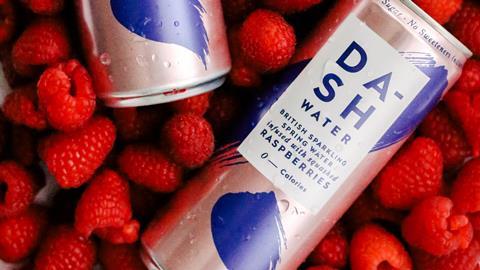
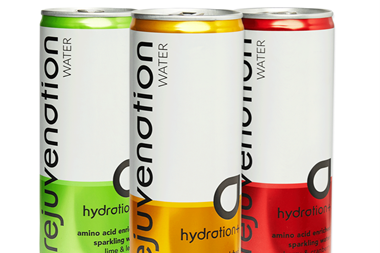



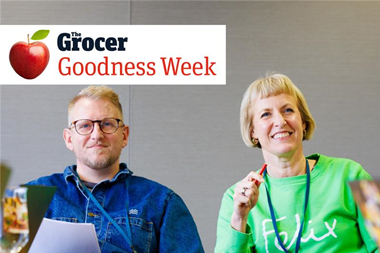
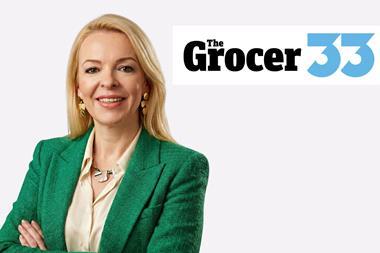





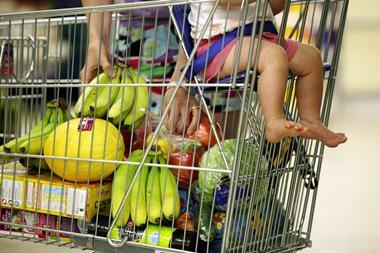
No comments yet